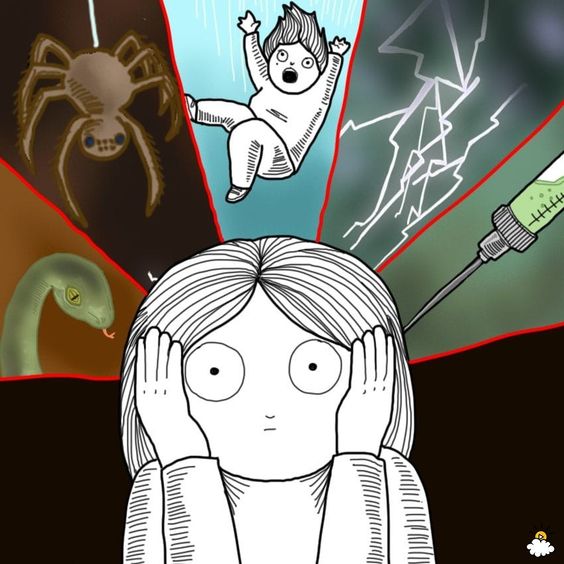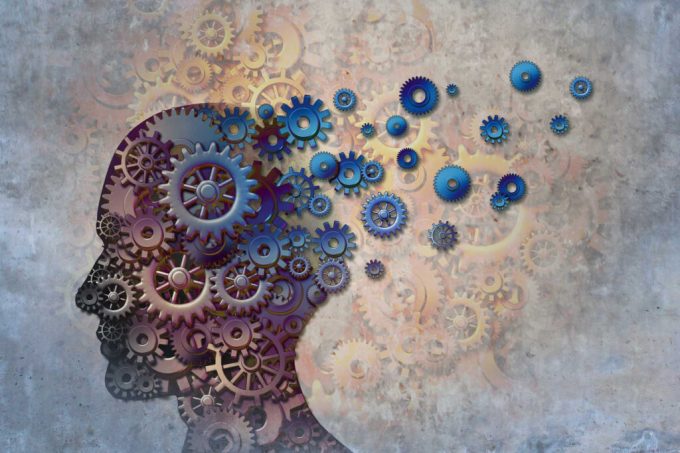Understanding and overcoming phobias
What is Phobia ?

Phobia comes from the Greek word “phobos,” which means fear. Each specific phobia has a name. Examples of more common names include acrophobia for the fear of heights and claustrophobia for the fear of confined spaces.
A phobia is when you have intense or even overpowering fear and anxiety in certain situations or when you encounter certain objects. While phobias can involve the same things as ordinary fears, the effects of phobias are more severe. In the most severe cases, people with phobias critically limit their lives to avoid encountering what they fear.
When you aren’t in a situation that directly involves your phobia, you can recognize that the fear is much more severe than it should be. But knowing that doesn’t change how you feel. If you encounter something that triggers your phobia, you’ll feel overwhelming fear or anxiety. You might be able to keep functioning, but doing so will be extremely difficult.
phobias are an extreme fear of objects or situations that pose little or no danger but make you highly anxious. So you try to stay away from these things. Unlike the brief anxiety you may feel when giving a speech or taking a test, phobias are long-lasting. Without treatment, phobias tend to last a lifetime.
Phobias can cause strong physical, mental and emotional responses. They also can affect how you act at work or school, or in social situations.
Specific or simple phobias

Specific or simple phobias, such as a fear of heights (acrophobia), usually develop during childhood.
Simple phobias can be linked to an early negative childhood experience. For example, if you’re trapped in a confined space when you’re young, you may develop a fear of enclosed spaces (claustrophobia) when you’re older.
It’s also thought that phobias can sometimes be “learnt” from an early age. For example, if someone in your family has a fear of spiders (arachnophobia), you may also develop the same fear yourself.
Other factors in the family environment, such as having parents who are particularly anxious, may also affect the way you deal with anxiety later in life.
Complex phobias

It’s not known what causes complex phobias, such as agoraphobia and social phobia. However, it’s thought that genetics, brain chemistry and life experiences may all play a part in these type of phobias.
The physical reactions (symptoms) a person experiences when faced with the object of their fear are real and aren’t simply “in their head”.
The body reacts to the threat by releasing the hormone adrenaline, which causes symptoms such as:
- sweating
- trembling
- shortness of breath
- a rapid heartbeat (tachycardia)
How many different phobias are there?

Because phobias, including the feelings of fear or anxiety they cause, affect everyone differently, there’s no set number of fears. However, experts group fears into five main categories:
|
Category |
Examples of phobias |
| Animals. | Alligators, dogs, snakes. |
| Natural environment. | Heights, storms, water. |
| Blood, medical procedures or injuries. | Needles, sharp objects, pain. |
| Situations. | Driving, flying, enclosed spaces. |
| Other. | Children, choking, clowns. |
Check this article to explore The most common phobias : https://asia.wiki/link/1025
Less common phobias

Other less common phobias are fears of:
- sharp objects (Aichmophobia)
- Cats (Ailurophobia)
- People (Anthropophobia)
- Men (Androphobia)
- Women (Gynophobia)
- Water (Aquaphobia)
- Bees (Apiphobia)
- Dogs (Cynophobia)
- Dentists and doctors (Dentophobia and Iatrophobia respectively)
- Reptiles (Herpetophobia)
- Sleep (Hypnophobia)
- Mice (Musophobia)
- Dirt and germs (Mysophobia)
- Anything new (Neophobia)
- Snakes (Ophidiphobia)
- Fire (Pyrophobia)
- Being buried alive (Taphophobia)
- God (Theophobia)
- Strangers (Xenophobia)
- Animals (Zoophobia)
- Thunder And Lightning
Symptoms

A specific phobia involves a strong, lasting fear of a certain object or situation that’s much greater than the actual risk. There are many types of phobias. It’s common to have a specific phobia about more than one object or situation. Specific phobias also can happen along with other types of anxiety disorders.
Common types of specific phobias are fears of:
- Situations, such as airplanes, driving, enclosed spaces or going to school.
- Nature, such as thunderstorms, heights or the dark.
- Animals or insects, such as dogs, snakes or spiders.
- Blood, shots or injuries, such as needles, accidents or medical procedures.
- Others, such as choking, throwing up, loud noises or clowns.
No matter what specific phobia you have, you may:
- Feel intense fear, anxiety and panic right away when exposed to or even thinking about what causes your fear.
- Know that your fears are not reasonable or not as big as you think they are, but you cannot control them.
- Have anxiety that gets worse as the situation or object gets closer to you physically or in time.
- Do everything possible to stay away from an object or situation or face it with extreme anxiety or fear.
- Have trouble with daily activities because of your fear.
- Have physical reactions and feelings, including sweating, rapid heartbeat, tight chest or trouble breathing.
- Feel like throwing up, or you get dizzy or faint, especially around blood or injuries.
- Children may have tantrums, or they may cling, cry or refuse to leave a parent’s side or approach their fear.
What causes phobias?

Phobias are when your brain takes fear and anxiety to extreme degrees. Under ordinary circumstances, these emotions can be protective and helpful. They’re your brain’s way of warning you that something is wrong and you might be (or currently are) in danger. But experts don’t fully understand why these emotions can turn into phobias. However, several factors and processes may contribute to having a phobia. These include:
- Traumatic experiences: These can be experiences that happen to you or that you see happen to someone else.
- Genetics: Certain types of phobias are more likely to happen in people who have a relative with that type of phobia. The types with higher rates in family members are animal, blood/medical procedure/injury and situational phobias.
- Informational transmission: Some phobias may happen because of things you learn about or things you see or hear repeatedly.
- Learned fears: People can learn about the phobias or fears of others and may develop a phobia as a result. This may be a factor in why people with overprotective parents may be more likely to have specific phobia.
Treatment

Phobias are highly treatable, and people who have them are nearly always aware of their disorder. This helps diagnosis a great deal.
Speaking to a psychologist or psychiatrist is a useful first step in treating a phobia that has already been identified.
If the phobia does not cause severe problems, most people find that simply avoiding the source of their fear helps them stay in control. Many people with specific phobias will not seek treatment as these fears are often manageable.
It is not possible to avoid the triggers of some phobias, as is often the case with complex phobias. In these cases, speaking to a mental health professional can be the first step to recovery.
Most phobias can be cured with appropriate treatment. There is no single treatment that works for every person with a phobia. Treatment needs to be tailored to the individual for it to work.
The doctor, psychiatrist, or psychologist may recommend behavioral therapy, medications, or a combination of both. Therapy is aimed at reducing fear and anxiety symptoms and helping people manage their reactions to the object of their phobia.














Leave a comment